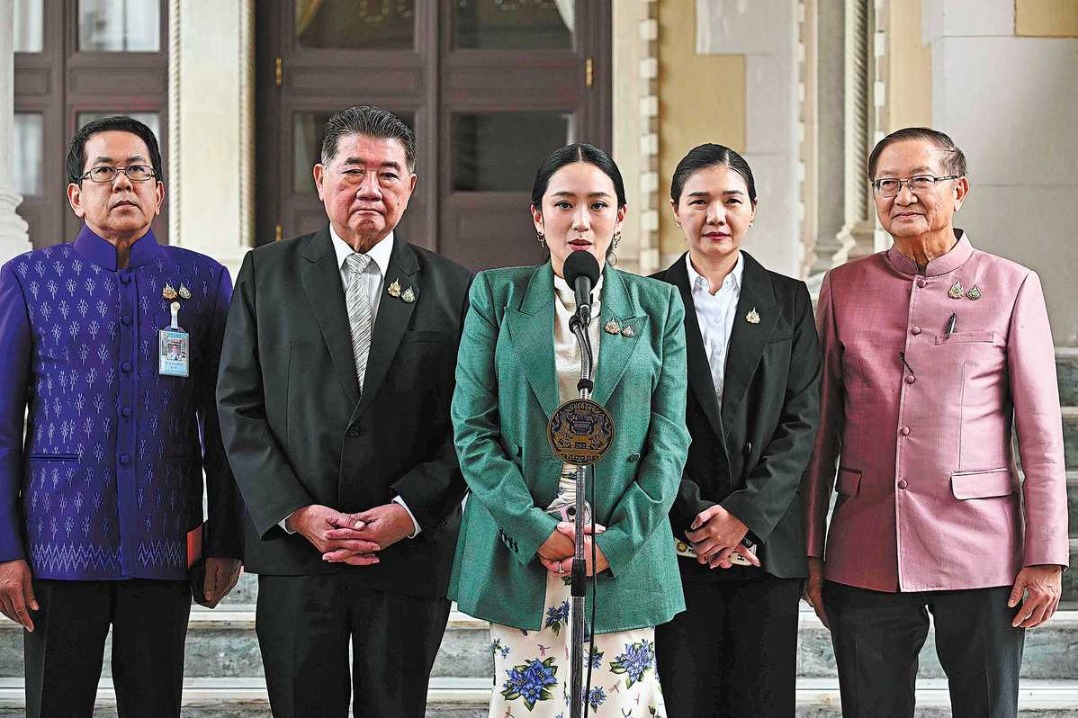China-Laos business ties boosting regional connectivity

The economic cooperation between China and Laos will not only enhance the connectivity of the two countries but also bring shared benefits for the whole of Southeast Asia, a Laotian business leader told China Daily.
Laos and China have formed a close political partnership, and now it is time to develop their economic relations as well and involve all the stakeholders from both countries, said Oudet Souvannavong, president of the Lao National Chamber of Commerce and Industry.
"The connectivity between Laos and China will also enhance further connectivity of the rest of Southeast Asia," he said.
For example, the China-Laos Railway, which began operation in December 2021, has opened up logistics routes for the landlocked Southeast Asian country, allowing it to develop industries and facilities.
Linking Kunming in Yunnan and the Laotian capital of Vientiane, the China-Laos Railway is a flagship project under the Belt and Road Initiative.
As of May 22, total freight volume surpassed 60 million metric tons, with cross-border shipments exceeding 13.9 million metric tons, according to Xinhua News Agency.
With improved transport infrastructure and logistics, Oudet said it supports Laotian manufacturing, agriculture, and tourism.
"The collaboration between China and Laos (in) business is very important to continue the productivity and industrial development in new technologies alongside the railway," said Oudet.
In addition, Vietnam's planned railway project to connect with China will further increase regional connectivity, which will create a boost for industries, said Oudet, adding that Laos is planning to build another railway to connect Vietnam.
He said that therecent cooperation between China and Laos in artificial intelligence will also bring several opportunities.
In February, South China's Guangxi Zhuang autonomous region signed an agreement with Laos to jointly establish the China-Laos AI Innovation Cooperation Center, the first of its kind between China and an Association of Southeast Asian Nations member.
As China has become a key leader in technologies like AI and electric vehicles, Oudet said he thinks ASEAN should deepen its exchanges with China in terms of technology and services.
"Laos will benefit as an ASEAN member, and we have a number of companies that are eligible to participate in this AI development," said Oudet.
Noting that Laos faces one of the highest tariff rates of 48 percent by the United States, Oudet said Laos and China can work together to promote industrial development and high technology to get into new markets in Asia.
"The market we have in Southeast Asia is also very mature if you compare it with 10 years ago, and now the middle class we have is increasing," said Oudet, noting regional markets like ASEAN, India, and the Middle East can provide future opportunities amid global trade challenges.
Apart from large State-owned companies, Oudet said there has been an increasing number of private companies from China interested in Laos, and the national chamber is working actively with Chinese business groups to promote bilateral economic and trade cooperation.
The national chamber has representative offices in Guangzhou, Changsha, and Chongqing. Two new offices in Beijing and Shanghai will open this year, according to Oudet.
China is currently Laos' largest investor, and is on track to surpass Thailand to become Laos' largest trading partner.
Bilateral trade was valued at $8.23 billion in 2024, a year-on-year increase of 15.9 percent, according to the Chinese Foreign Ministry.

































